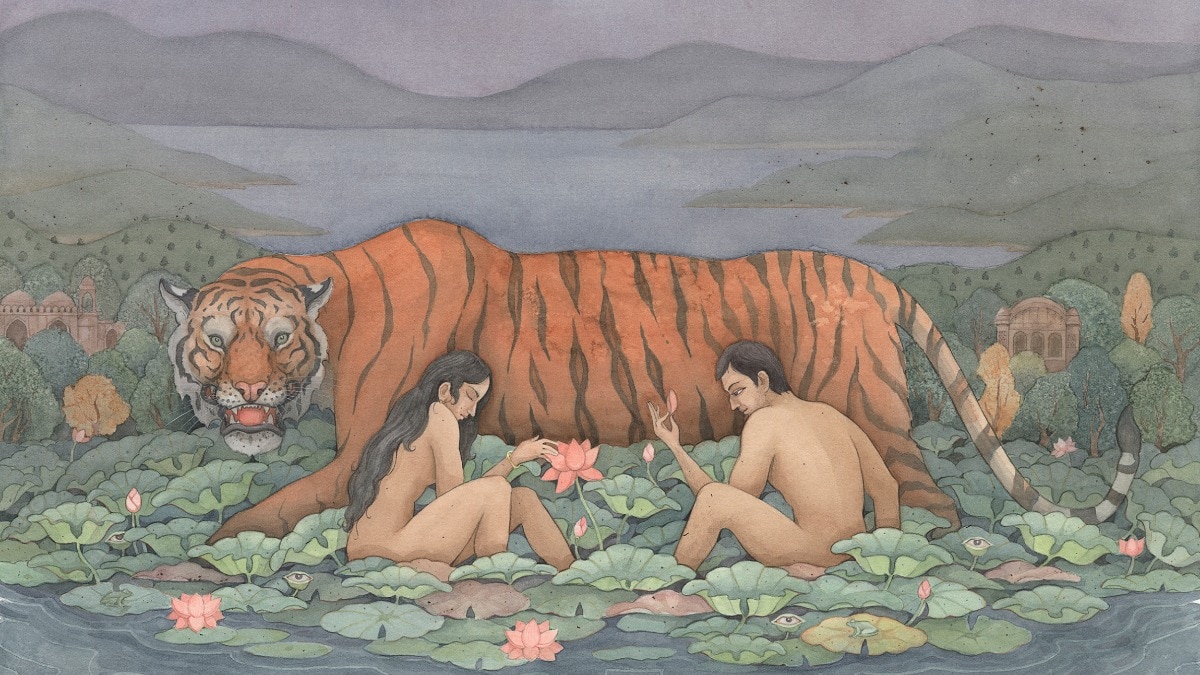
Why have so many of us stopped reading?
New research reveals half of the UK’s adults ‘do not read’, and 15 per cent claim to have ‘never read’ for pleasure.


At the height of lockdown, it was rare to find me without a book firmly lodged in my hands. Physically, we were forced to stay indoors, but mentally I traversed through a slew of different worlds painted by words; the captivating magical realism of Salman Rushdie, the affectless extremity of Bret Easton Ellis, the tense uncertainty curated by Paula Hawkins. I read hungrily, vociferously, to satiate my growing appetite; as soon as I devoured one book, I’d reach for another to binge-read. A quick look at my Notes app shows that I read 68 books in 2020. Now, as I survey the list of books I’ve read in 2024, the list is significantly shorter. Of course, it was unlikely I was going to keep reading at the same rate I did during lockdown, where there was literally nothing else to do, but I didn’t think it’d ever come to the stage where I’d struggle to read at all.
I am not alone in having developed a readers’ block. New research conducted by The Reading Agency found that half of all UK adults "don’t read"—a decline from the 58% who considered themselves regular readers in 2015. In more depressing news, 15% confess to having "never" read for pleasure at all. It’s a problem that extends to the youth as well; a quarter of those aged between 16 and 24 claim to have never been readers.
Why have we all turned our backs on books? The survey blames time; 33% of respondents said their reading dry spell was due to being busy. It’s not untrue—life is increasingly hectic, in spite of many of us vowing to keep the slower pace we enjoyed through lockdown. Juggling work, exercise, childcare, socialising and sleeping in 24 hours is tough enough, without trying to snatch snippets of time to fit in reading bestsellers—and that’s from me, speaking as someone whose job it is to imbibe, enjoy and recommend the best of culture. If I’m finding it all a wee bit much, how is the average person balancing work and family responsibilities meant to fit it all in?

Timings may be tight, but I would be lying if I said that was the only reason I’m not reading. Truly, I feel I no longer always have the mental bandwidth to sit down and enjoy a book. In a study by King’s College London’s Centre for Attention, researchers found that 49% of adults surveyed felt that their attention span was shorter than it used to be, and a similar number (47%) believed that "deep thinking" was a thing of the past.
My concentration has been hijacked by pings, alerts and messages, the content of social media sticking to our brains like slime. Instead of curling up with a book in bed, I spend time scrolling on TikTok looking at mindless videos I don’t really care for. I lament all the time I’ve wasted on my phone, when I could have had my nose in a book doing something genuinely enriching. Lockdown was a difficult time, but it was constantly reading that got me through it, with the activity proven good for our mental health. Research by Dr David Lewis showed that reading as little as six minutes a day can reduce stress levels by 60%, by reducing your heart rate, easing muscle tension and altering your state of mind. Without books, I would have been climbing the walls of my poky one-bedroom flat; there's only so much Netflix you can handle in one week.
While there is currently a collective struggle to start reading, there are glimmers of hope that we will engage with books once again. BookTok is setting the agenda on must-reads for Gen Z and beyond; celebrities from Reese Witherspoon to Dua Lipa and Emma Watson have launched their own book clubs; popular TV adaptations such as One Day and The Decameron are encouraging people to pick up the paperback originals (41% of respondents to the report by The Reading Agency found that they have been inspired to read something by a film or TV show).
The shiny newness of noisy technology may have distracted us, but being able to read and the privileges it gives us – exploring new worlds, understanding new perspectives—is a gift. It’s one we ought to learn how to cherish once again.
This article first appeared in harpersbazaar.com/uk in July 2024.
Also read: Why don’t we take women’s pain seriously?
Ten podcasts you should get hooked onto right now










